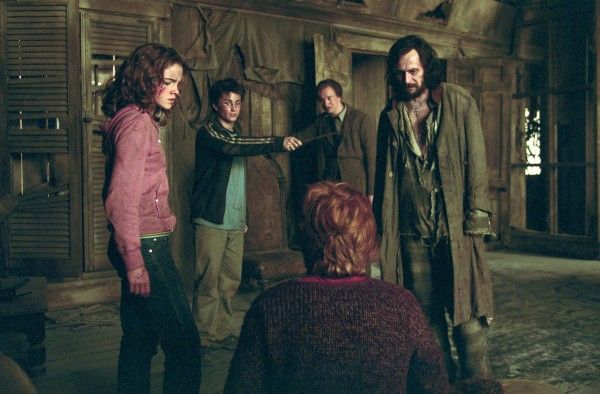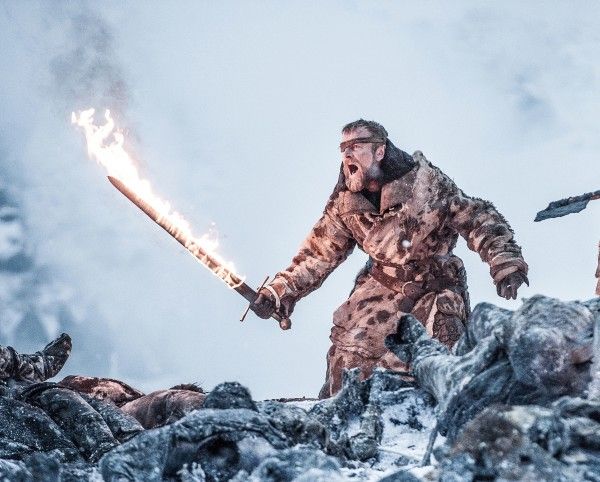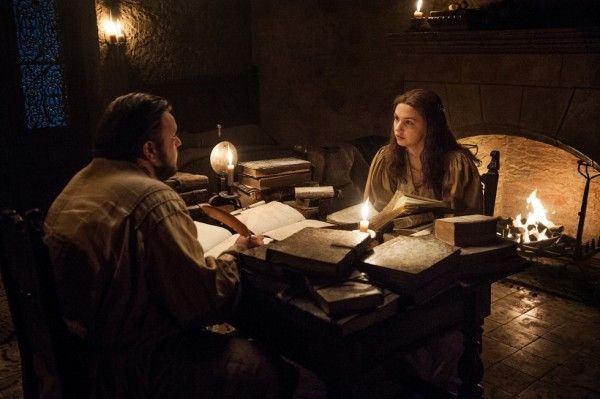There is an unspoken (or, sometimes, very loudly spoken) hierarchy in fandoms for TV shows like Game of Thrones: book readers trump non-book readers every time. The implication is that “real” fans read the source material, while casual fans merely watch the show.
This judgment trickles down into Reddit threads, water cooler discussions, and recap comments section everywhere, becoming the subject that is too often talked about and around (Especially since the Game of Thrones in particularly has moved so far past the last published book). It’s a shame because this means fan conversations are constrained and distracted by the belief that, if you haven’t read the source material, then your opinions and reactions are worth less.
Our knee-jerk judgment of seeing those who have read the book as being “better” fans is a flawed one, rooted in a tendency to create hierarchies, or systems of power and ownership. This need to create a hierarchy of fandom seems related to some of the larger, higher-stakes cultural problems we’re having right now. Fandom hierarchies are built on the foundational idea that there is a finite amount of cultural space to be conquered, and that sharing it represents a loss of power rather than the gaining of more, diverse perspectives to consider and discuss. It’s built on the idea that a story can and should be owned and, if you don’t own it, someone else will. That foundation is flawed.
Look, I get the logic of wanting to read the book first. I’ve been that person. Would-be fans don’t want to color their first experience of the source material with the interpretation of the adaptation. But, sometimes, I feel the opposite. Currently, I am actively fighting my desire to read The Expanse novels or the Outlander books because I don’t want to be spoiled for what’s going to come next on two of my favorite shows on television, or color my experience of watching the adaptation with the comparisons and expectations that come with having already read the source material. I don’t think that makes me less of a fan. I think it makes me a different kind of fan with a different kind of perspective.
Comparison and expectation change the way we experience a story. Sometimes, they can keep us from fully immersing ourselves in a fictional world. All it takes is a moment of, ‘That’s not how it was in the book!’ and the fictional reality is broken, if only for a moment.
For a good example of comparison pulling the viewer out of an adaptation, see the Harry Potter and the Prisoner of Azkaban movie and its shameless cutting of most of the Marauders’ backstory. If you read and loved the book, then you were probably wondering why Professor McGonagall was holding so many details back during that scene in The Three Broomsticks. If you’d never read the books, you were probably riveted at all of the backstory details you got, unaware of all that was not being said.
As for expectation, it can gut the emotional intensity of (in Game of Thrones), a moment like the chopping off of Jaime Lannister’s hand or the slaughter of the Red Wedding. You’re too busy dreading a moment and/or watching your friends’ reactions to experience it in the same way as non-book readers do.
I had read the first three books in A Song of Ice and Fire before the Game of Thrones TV show was announced and premiered. Yet after I got into the on-screen adaptation, I actively stopped reading the books so that I would eventually be able to watch the show unspoiled.
This works in reverse, too, of course. If you read a book after having seen the screen adaptation, comparison and expectation will shape your reading experience. However, because we still tend to value literature over television as a medium, you don’t often hear people openly worrying about ruining their TV experience by first reading the book.
The unspoken judgment happening there is that of course you would prioritize the book version over the TV version. Literature is the more sacred storytelling form. Interestingly, as the Game of Thrones TV show has progressed past the book series, fans of the book have lost the option of reading ahead in an unprecedented adaptation experience. Unless you wait to watch the TV show, then you are changing your future experience of reading the final books in the A Song of Ice and Fire series. You are, in some way, prioritizing the viewing experience over the reading experience.
The unique case of Game of Thrones has yet to shake society’s long-held belief that books are capable of greater, more important storytelling than TV. Not only do I think that’s not the case (they’re both equally capable of great and terrible things), but I think the cultural bias is slowly shifting into something more neutral. Call me an unrepentant optimist, but I think the same may be true for fandom hierarchies.
I am not suggesting that my preference of sometimes waiting to read the book until after I have seen the adaptation is a better way of being a story fan, only that it’s not a worse way either. Someone loving something in a different way than you or with a different interpretation than yours doesn’t invalidate your way of loving that thing. Infinite ways of being a fan can and do co-exist. They don’t negate or invalidate one another. This is why creating fanworks is such a subversive act. Fanworks, just by existing, actively reject the notion that a story can belong to anyone. While this might seem like a modern idea, it is actually an old one. The idea of someone owning a story is the modern idea, a notion that came along with the rise of capitalism and copyright law.
If infinite ways of being a fan can co-exist, then loving a TV show as someone who is a fan of the books doesn’t make you a “better” fan. That prior knowledge, along with a million other identities and experiences unique to you, just makes you a different kind of fan. If you’re looking to be part of a fandom filled with people who experience a story in exactly the same way as you do, then get ready to be part of a fandom of one. I have an alternate suggestion: It’s time to tear down the fandom hierarchies and start having more interesting conversations about the stories we all share.





